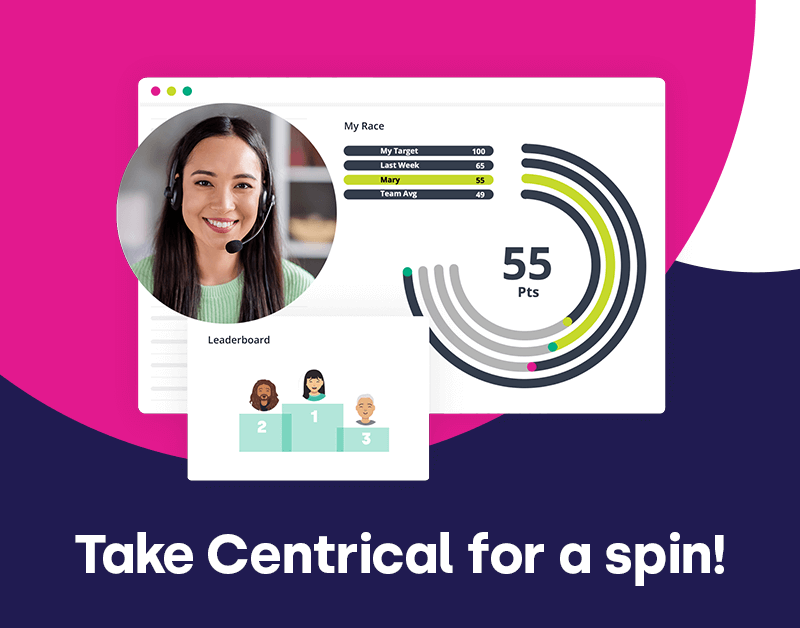This article was originally published as part of Centrical CEO and founder Gal Rimon’s “The Future of Work” newsletter. For more insights on CX, EX, and industry thought leadership, subscribe today and follow Gal on LinkedIn.
As someone who travels very frequently for work, I rely on loyalty programs to make my trips more seamless and earn free flights or hotel nights along the way. But a couple of weeks ago, I encountered a situation that made me question how some companies approach customer service—and how empowered their frontline agents truly are.
Here’s what happened.
A Platinum Surprise
While booking a hotel room on Hotels.com for an upcoming business trip to London, I noticed something odd. After logging into a booking site as a platinum member, the price for the exact same hotel room jumped by several hundred dollars—a 16% increase! Confused, I reached out to customer service for clarification.
For the record, to say that I’m a loyal Hotels.com member may be an understatement: so far, in 2024, I’ve used this service for 69 nights at various hotels around the world, and I expect to hit 80 nights by the end of the year.
The response I received from the service rep was polite and professional, detailing various factors behind the price discrepancy: differences in points of sale and regional rewards programs, among others. The lower price was based on my geolocation (I was in Israel at the time), which didn’t match my platinum member location (the U.S.). The agent also offered a solution: I could secure a price match, if I first found a lower rate within another U.S. booking site, created a live booking, and then submitted the request.
The interaction left me wondering: Was this agent empowered to truly help me, or were they just following a script and rigid processes? Should I be questioning the value of my platinum status? (When my wife saw it, she did not miss the opportunity to poke fun at me and offered me to use her “member” status instead.)
In industries where customer expectations are higher than ever, are companies equipping their frontline employees with the tools, skills, and autonomy to make the right decisions in critical moments?
Breaking the Script: Empowering Frontline Decision-Making
As AI continues to revolutionize customer service by automating simple tasks and queries, human agents are tasked with handling the more complex and nuanced interactions. It’s no surprise average handle times (AHT) have increased significantly over the last few years. These evolving market dynamics require a shift in how we train and support frontline employees.
In 2025, your agents shouldn’t operate like bots—simply reading off scripts and rigidly following processes. When a customer’s issue doesn’t fit neatly into the playbook, agents need empathy, creativity, and critical-thinking skills to respond thoughtfully and effectively as they help customers navigate a variety of scenarios.
This is where organizations have an opportunity to shine and truly differentiate on service.
When a customer engages a frontline agent with an issue, it’s often because the company’s automated tools or standard processes failed to resolve their need. But agents today lack the competencies and skills to deliver this level of service.
AI-enabled upskilling and development can bridge the gap by delivering personalized learning experiences based on each agent’s individual needs. AI can also empower team leaders to act as coaches—and not just supervisors—by delivering real-time performance insights and coaching recommendations. This way, frontline employees can gain the skills and receive the support they need to navigate high-stakes interactions effectively.
The Skills Required for the Future of Customer Service
Let’s go back to the example I brought up above. For agents to turn the interaction into an opportunity for lasting loyalty, they would need to demonstrate:
- Empathy: to establish a meaningful connection with the customer, show an understanding of their frustrations and needs, and ensure that interactions feel human and personalized.
- Critical thinking skills: to evaluate the situation and consider the lifetime value of preserving a high-revenue customer relationship.
- Adaptability: to handle complex scenarios differently based on the context and expectations.
- Autonomy: to go beyond rigid scripts, making exceptions for the right customer. This doesn’t just solve the problem but also builds trust and strengthens loyalty.
- Growth mindset: to develop new skills and build on existing ones continuously through on-the-job upskilling.
So how can customer service leaders transform their employee experience to address these new and pressing needs?
From Robots to Talent: The Shift Companies Need
To enable frontline agents to make the leap and become the engaged, critical-thinking knowledge workers they need to be, forward-thinking companies will invest in the right tools. One way to approach this challenge is to leverage AI tools purpose-built to enable (not replace) agents to personalize their development. That’s where a performance experience platform like Centrical comes in. By providing agents the resources to learn, grow, and test their new skills in real time, you can foster a culture of performance excellence and autonomy.
With Centrical, your agents don’t just follow a script—they get a detailed view of their performance and improvement areas, and, through AI-powered microlearning and coaching solutions, are equipped with the knowledge and skills they need to resolve complex issues and drive customer satisfaction with empathy and expertise.
Key Takeaway: The shift from treating employees like robots to recognizing them as talented, empowered professionals is key to improving customer experience and achieving sustainable business growth.
Curious to learn how Centrical keeps the human experience central while leveraging AI? Discover more about our innovative solutions and strategies that bridge technology and the power of human connection.
Engage and motivate your frontline teams
Improve performance with an AI-powered digital coach
Deliver world class CX with dynamic, actionable quality evaluations
Boost performance with personalized, actionable goals
Nurture employee success with the power of AI
Listen and respond to your frontline, continuously
Drive productivity with performance-driven learning that sticks
Drive agent efficiency, deliver client results
Keep tech teams motivated and proficient on products and services while exceeding targets
Maintain compliance while building customer happiness and loyalty
Enlighten energy teams to boost engagement
Engage, develop, and retain your agents while driving better CX
Improve the employee experience for your reservations and service desk agents







 Madeleine Freind
Madeleine Freind
 Natalie Roth
Natalie Roth Linat Mart
Linat Mart












 Doron Neumann
Doron Neumann Gal Rimon
Gal Rimon Daphne Saragosti
Daphne Saragosti Ella Davidson
Ella Davidson Ariel Herman
Ariel Herman Ronen Botzer
Ronen Botzer